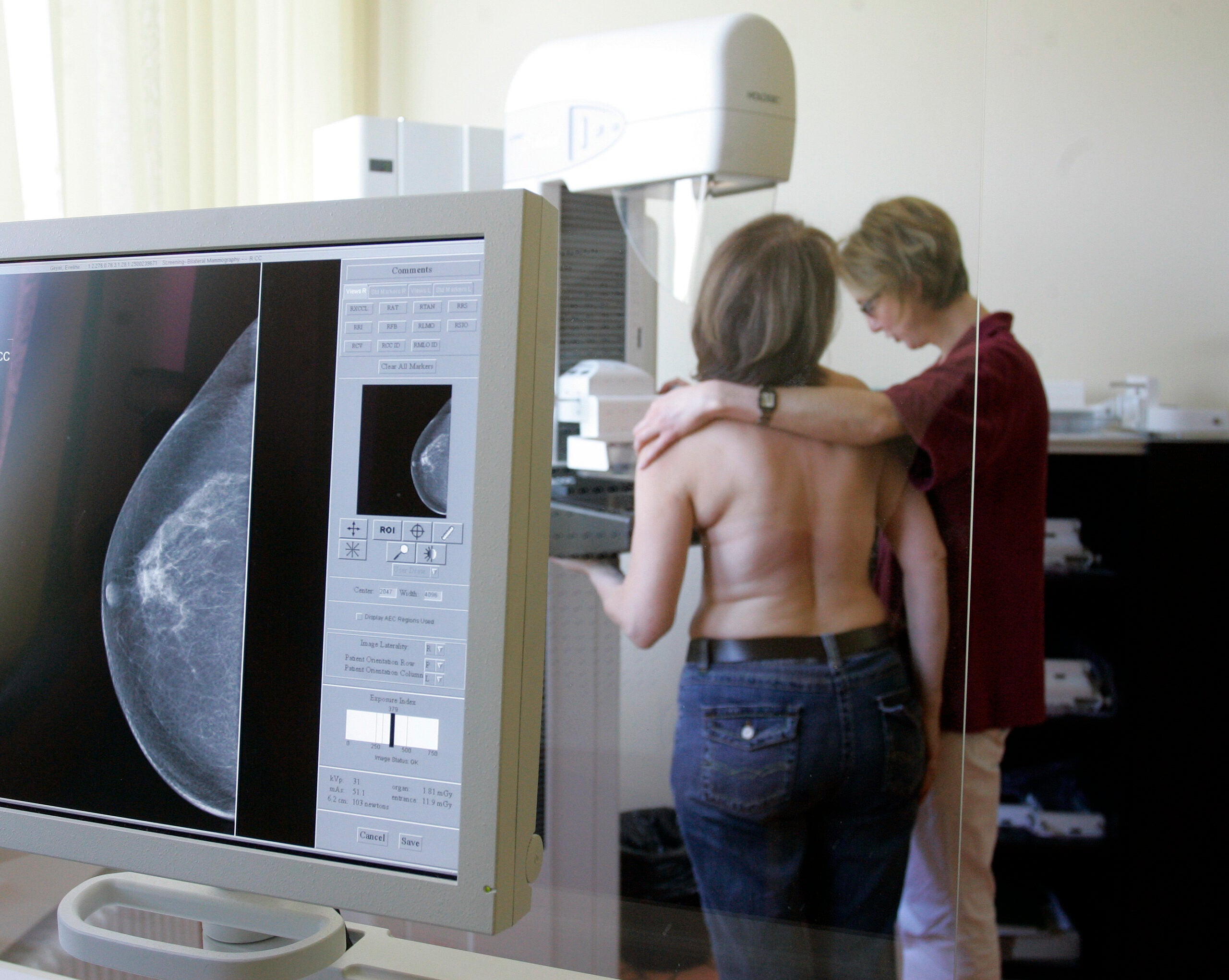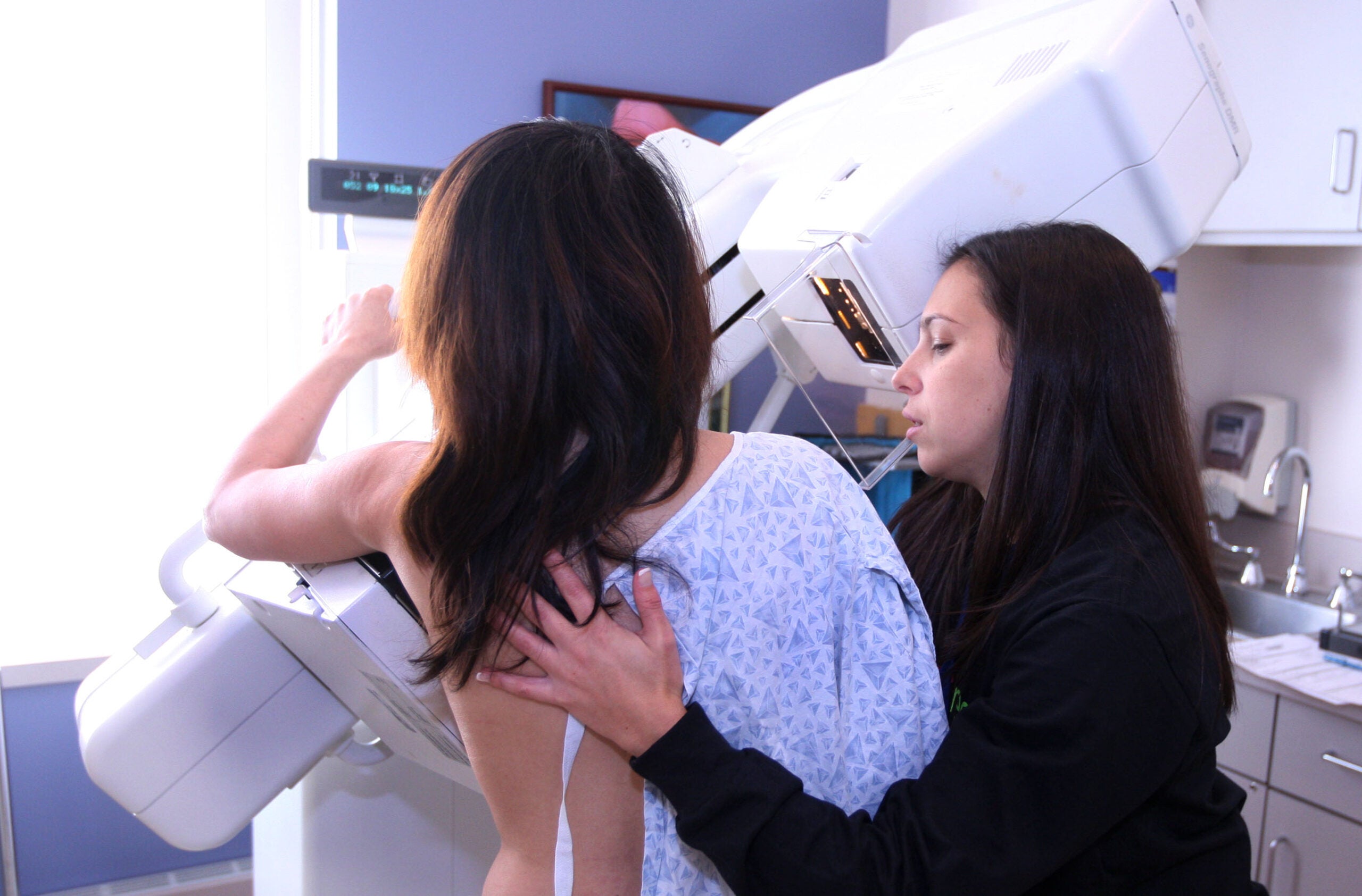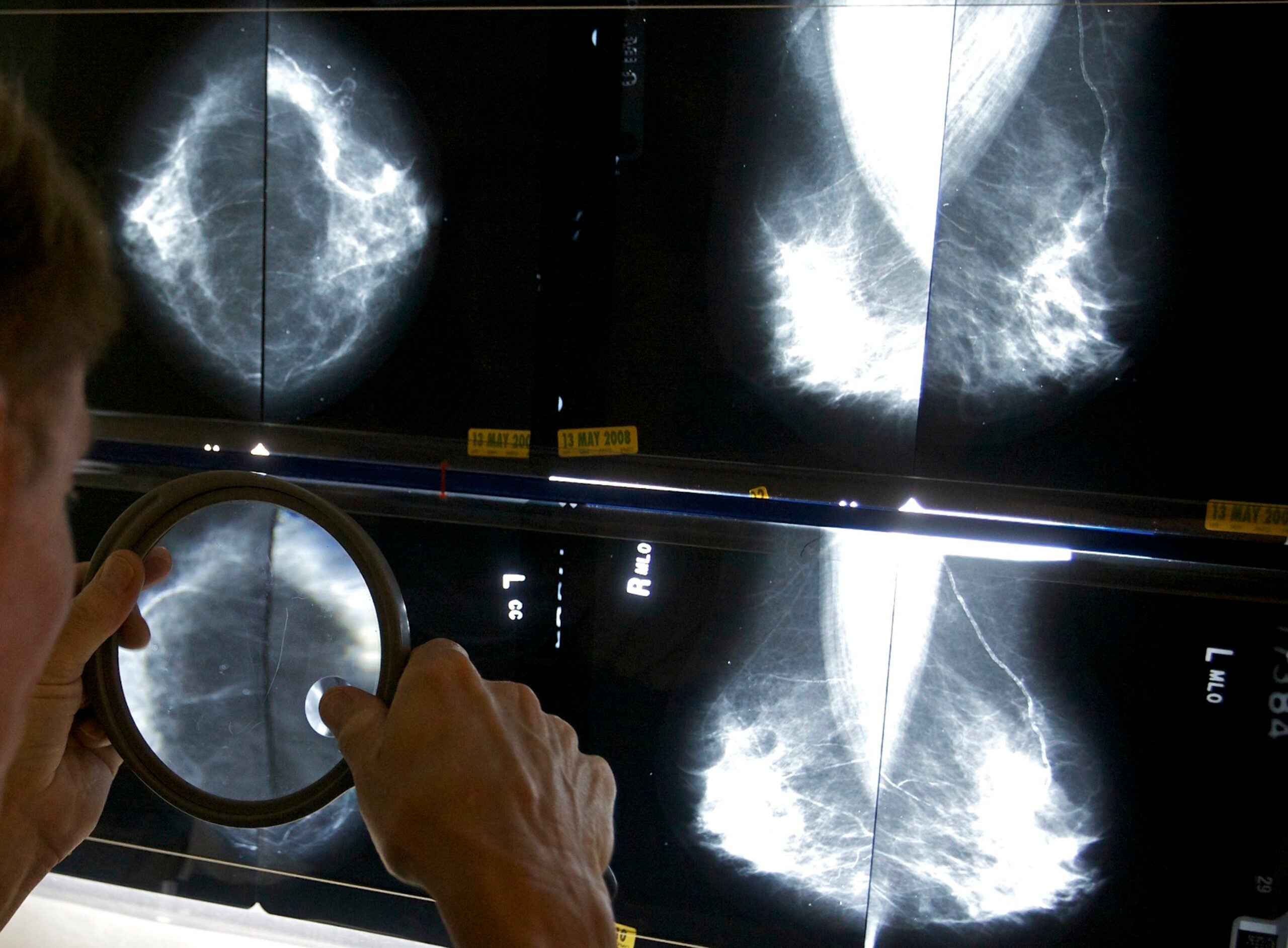Health plans would be required to cover additional screenings for people with a heightened risk of breast cancer under a proposal in the Wisconsin state Senate.
Advocates at a Senate health committee hearing Wednesday said that early detection saves lives, but that mammograms — currently covered for all women over the age of 50, and for some women aged 45 to 49 — are not completely effective, especially for people with certain risk factors.
More robust screenings for women with dense breast tissue or heterogeneous breast tissue can help catch breast cancer before it spreads, said Gail Zeamer, of Neenah. She told lawmakers her breast cancer, undetected for too long, has metastasized to her bones, uterus and brain.
News with a little more humanity
WPR’s “Wisconsin Today” newsletter keeps you connected to the state you love without feeling overwhelmed. No paywall. No agenda. No corporate filter.
“I was diagnosed too late,” Zeamer said at the emotional hearing. “This bill, unfortunately, will not save my life … but I know it’s so important in saving the lives of thousands of women in Wisconsin who will be diagnosed after me.”
While insurance often only covers diagnostic exams if an irregularity is discovered in the mammogram, several breast cancer patients testified Wednesday that their own mammograms did not indicate any irregularities.
Medical experts say that dense breast tissue can render a mammogram useless — akin to spotting “a polar bear in a snowstorm,” as Dr. Anand Narayan, a radiologist and breast imaging specialist, testified.
Secondary screenings — the kind that would be covered under the bill — essentially offer additional perspectives to sort through the snow. These can run thousands of dollars out of pocket. The proposal would require health insurance providers, including the state’s public medical insurance program, to cover those screenings with no copay for certain patients.
Several health insurance trade groups are opposed to the bill. R.J. Pirlot, executive director of the Alliance of Health Insurers, said there’s insufficient evidence that those supplemental screenings are effective enough to justify the costs.
“The legislation potentially encourages overutilization of imaging without the necessary research to show net actual benefits for all women with dense breast tissue,” he said.
Linda Hansen, an advocate with the Wisconsin Breast Cancer Coalition, argued that preventative screenings will reduce costs overall. She said that living with stage four metastasized breast cancer for a decade longer than her doctors predicted has been “lucky.”
“But you know who hasn’t been lucky? My insurance company,” she said. “I will be going through treatment the rest of my life, which means I’m going to continue spending money, now that I’m on Medicare, of the taxpayers, to the tune of close to a million dollars a year.”
The bill is supported by medical groups, including the American Cancer Society, the American College of Obstetricians and Gynecologists, the Medical College of Wisconsin and the Wisconsin Nurses Association. It has bipartisan support in both the state Assembly and Senate.
Senators hold hearing on pharmacist birth control bill
Also on Wednesday, Senate committee members heard testimony about a bill that would allow pharmacists to prescribe hormonal birth control over the counter.
The proposal, which has already passed the Assembly, would allow a pharmacist to directly give a person hormonal birth control without a doctor’s prescription. Rep. Joel Kitchens, R-Sturgeon Bay, has argued this would reduce unwanted pregnancies, which he said contribute to generational poverty and impose a cost on taxpayers.
The bill has bipartisan support in the Senate, and sign-on from public health groups, pharmaceutical groups and Planned Parenthood.
Richelle Andrae, of the Wisconsin Primary Health Care Association, said this could expand birth control access to rural areas and low-income people who struggle to access health care clinics.
While some Republican lawmakers have supported the bill as a means of reducing the need for abortions, it is opposed by anti-abortion groups and the Wisconsin Catholic Conference.
Barbara Sella, executive director of Wisconsin Catholic Conference, said that because the Catholic Church opposes contraceptive access, the bill could violate “the individual conscience rights of pharmacists.”
Similar legislation passed the Assembly in 2019 and 2021, but did not pass in the Senate. When asked about the bill’s chances in the Republican-led Senate this session, co-author Sen. Mary Felzkowski, R-Irma, said she was “very optimistic.”
Wisconsin Public Radio, © Copyright 2025, Board of Regents of the University of Wisconsin System and Wisconsin Educational Communications Board.






